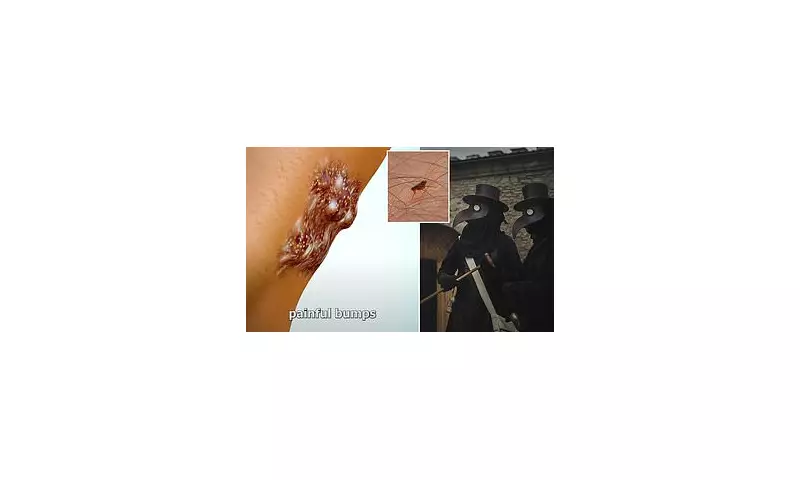
In a chilling echo of medieval history, health officials have confirmed a case of the bubonic plague in the United States, sending ripples of concern through the medical community. The diagnosis coincides with the release of a horrifying new CGI simulation that lays bare the brutal internal devastation wrought by the Yersinia pestis bacterium.
The unidentified patient, based in Pueblo County, Colorado, is currently receiving treatment. While the specific type of plague has not been disclosed, the news has thrust this ancient killer back into the modern spotlight.
A Grisly Journey Through the Body
The newly unveiled simulation, a stark educational tool, depicts the gruesome path of the plague. It begins with a flea bite, transferring the bacteria into the human system. The visualisation then tracks its relentless spread through the lymphatic system, causing the characteristic swollen and pus-filled buboes in the groin, armpit, or neck that gave the Black Death its name.
In its most deadly forms, the infection can escalate rapidly. Septicemic plague occurs when the bacteria multiplies in the bloodstream, while pneumonic plague – the only form that can be transmitted through airborne droplets from person to person – attacks the lungs, causing a deadly and contagious pneumonia.
From Past Pandemics to Present Precautions
The Black Death remains the most fatal pandemic in recorded history, wiping out an estimated third of Europe's population in the 14th century. While modern antibiotics have drastically reduced its mortality rate if caught early, this case is a potent reminder of its persistent presence.
Health officials are urging calm but advising vigilance. The disease is endemic in rural areas of the western US, including parts of Colorado, where it circulates among wild rodent populations.
The Pueblo Department of Public Health has issued clear guidance for residents:
- Eliminate rodent habitats around homes, sheds, garages, and recreational areas.
- Use insect repellent containing DEET to reduce flea bites.
- Avoid handling sick or dead animals and never touch wild rodents.
- Treat pets regularly for fleas and do not allow them to hunt rodents.
- Seek immediate medical attention if you develop a sudden fever, chills, or swollen lymph nodes.
This case, while rare, underscores the enduring threat of ancient diseases in a contemporary world and the critical importance of robust public health surveillance.





